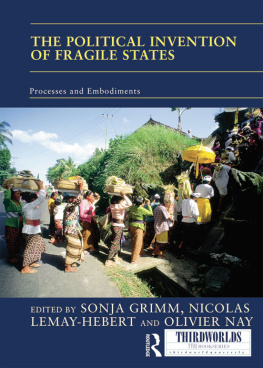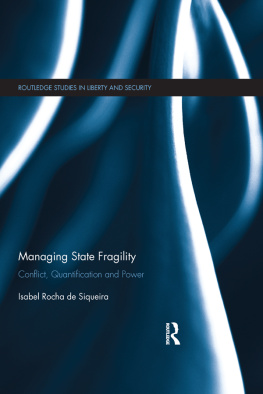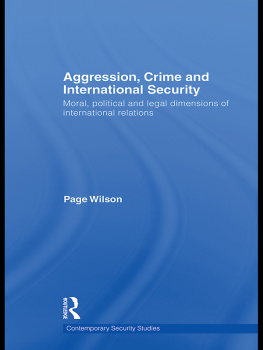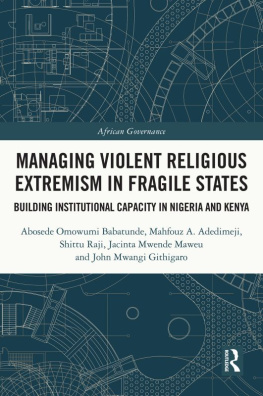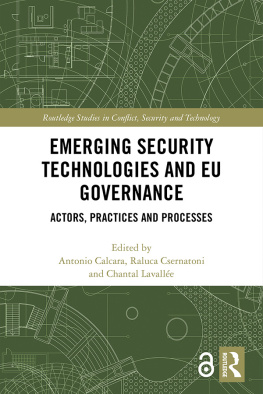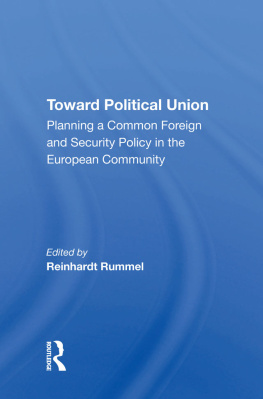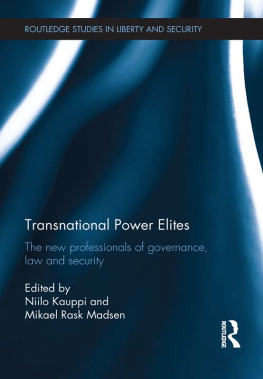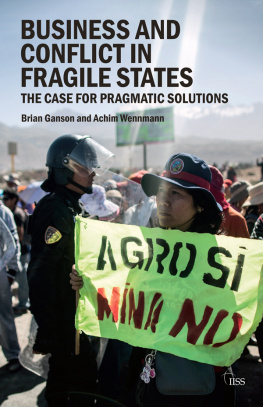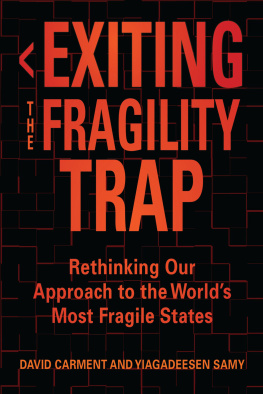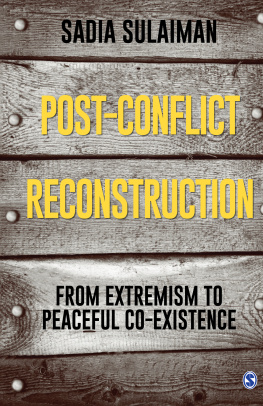The Political Invention of Fragile States
This book investigates the emergence, the dissemination and the reception of the notion of state fragility. It analyses the process of conceptualisation, examining how the fragile states concept was framed by policy makers to describe reality in accordance with their priorities in the fields of development and security. Contributors investigate the instrumental use of the state fragility label in the legitimisation of Western policy interventions in countries facing violence and profound poverty. They also emphasise the agency of actors on the receiving end, describing how the elites and governments in so-called fragile states have incorporated and reinterpreted the concept to fit their own political agendas. A first set of articles examines the role played by the World Bank, the OECD , the European Union and the G7+ in the transnational diffusion of the concept, which is understood as a critical element in the new discourse on international aid and security. A second set of papers employs three case studies (Sudan, Indonesia and Uganda) to explore the processes of appropriation, reinterpretation and the strategic use of the fragile state concept.
This book was originally published as a special issue of Third World Quarterly .
Sonja Grimm is a Senior Lecturer in the Department of Politics and Public Administration, University of Konstanz, Germany. She publishes on democratization in post-conflict societies and democracy promotion and has co-edited special issues of Democratization on War and Democratization (2008) and Do All Good Things Go Together? Conflicting Objectives in Democracy Promotion (2012). More about her can be found at [www.sonja-grimm.eu].
Nicolas Lemay-Hbert is a Senior Lecturer in the International Development Department, University of Birmingham, UK . He is the co-editor of the Journal of Intervention and Statebuilding (with Florian Kuhn). His most recent book is Semantics of Statebuilding: Language, Meanings and Sovereignty (2014; co-edited with N. Onuf, V. Rakic, and P. Bojanic).
Olivier Nay is a Professor of Political Science at the University of Paris 1 Panthon Sorbonne, France. He is the Vice-president of the French Association of Political Science and the Chair of the Political Science section at the National Academic Council. He specialises on the reform of international organizations, bureaucratic change and the transnational diffusion of policy ideas. Please see [univ-paris1.academia.edu/OlivierNay].
Thirdworlds
Edited by Shahid Qadir, University of London
THIRDWORLDS will focus on the political economy, development and cultures of those parts of the world that have experienced the most political, social, and economic upheaval, and which have faced the greatest challenges of the postcolonial world under globalisation: poverty, displacement and diaspora, environmental degradation, human and civil rights abuses, war, hunger, and disease.
THIRDWORLDS serves as a signifier of oppositional emerging economies and cultures ranging from Africa, Asia, Latin America, Middle East, and even those Souths within a larger perceived North, such as the U.S. South and Mediterranean Europe. The study of these otherwise disparate and discontinuous areas, known collectively as the Global South, demonstrates that as globalisation pervades the planet, the south, as a synonym for subalterity, also transcends geographical and ideological frontiers.
Terrorism and the Politics of Naming
Edited by Michael Bhatia
Reconstructing Post-Saddam Iraq
Edited by Sultan Barakat
From Nation-Building to State-Building
Edited by Mark T. Berger
Connecting Cultures
Edited by Emma Bainbridge
The Politics of Rights
Dilemmas for feminist praxis
Edited by Andrea Cornwall and Maxine Molyneux
The Long War Insurgency, Counterinsurgency and Collapsing States
Edited by Mark T. Berger and Douglas A. Borer
Market-led Agrarian Reform
Edited by Saturnino M. Borras, Jr.
After the Third World?
Edited by Mark T. Berger
Developmental and Cultural Nationalisms
Edited by Radhika Desai
Globalisation and Migration
New issues, new politics
Edited by Ronaldo Munck
Domestic and International Perspectives on Kyrgyzstans Tulip Revolution
Motives, mobilizations and meanings
Edited by Sarah Cummings
War and Revolution in the Caucasus
Georgia Ablaze
Edited by Stephen F. Jones
War, Peace and Progress in the 21 st Century
Development, Violence and Insecurities
Edited by Mark T. Berger and Heloise Weber
Renewing International Labour Studies
Edited by Marcus Taylor
Youth in the Former Soviet South
Everyday Lives between Experimentation and Regulation
Edited by Stefan B. Kirmse
Political Civility in the Middle East
Edited by Frdric Volpi
The Transformation of Tajikistan
Sources of Statehood
Edited by John Heathershaw
Movement, Power and Place in Central Asia and Beyond
Contested Trajectories
Edited by Madeleine Reeves
People Power in an Era of Global Crisis
Rebellion, Resistance and Liberation
Edited by Barry K. Gills and Kevin Gray
EU Strategies on Governance Reform
Between Development and State-building
Edited by Wil Hout
Identity, Inequity and Inequality in India and China
Governing Difference
Edited by Ravinder Kaur and Ayo Wahlberg
The Personal and the Professional in Aid Work
Edited by Anne-Meike Fechter
Rising Powers and the Future of Global Governance
Edited by Kevin Gray and Craig N. Murphy
The Millennium Development Goals: Challenges, Prospects and Opportunities
Edited by Nana Poku
Development Perspectives from the Antipodes
Edited by Susanne Schech
Health, Drugs and Healing in Central Asia
Edited by Alisher Latypov
The Global Politics of Impairment and Disability
Processes and Embodiments
Edited by Karen Soldatic and Helen Meekosha
Negotiating Well-being in Central Asia
Edited by David W. Montgomery
New Actors and Alliances in Development
Edited by Lisa Ann Richey and Stefano Ponte
The Political Invention of Fragile States
The Power of Ideas
Edited by Sonja Grimm, Nicolas Lemay-Hbert and Olivier Nay
Global Land Grabs
History, Theory and Method
Edited by Marc Edelman, Carlos Oya and Saturnino M. Borras Jr.
The Afghan Conundrum: intervention, statebuilding and resistance
Edited by Jonathan Goodhand and Mark Desra

